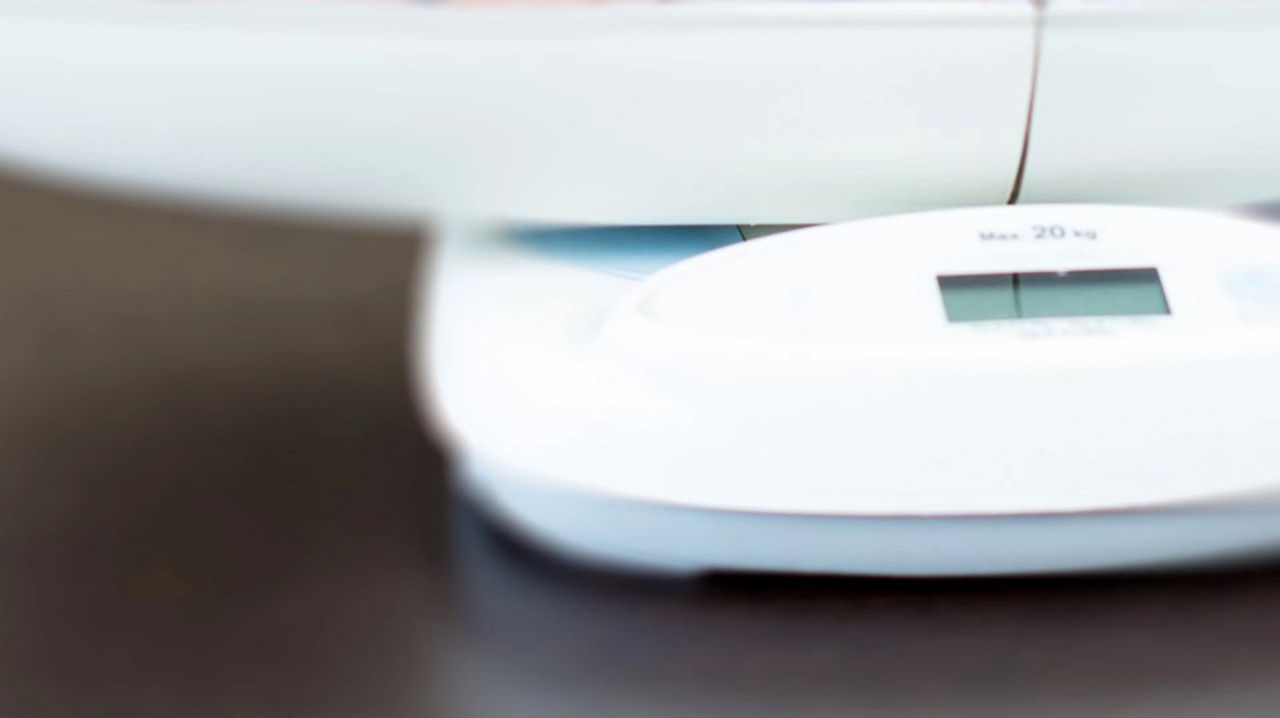The growth centiles on a baby weight chart show the average weight gain for babies of different ages, and you’ll see your baby grow most rapidly in the early months of their life.
Don’t be too concerned if your baby starts off at the top or the bottom end of the baby weight chart - this doesn’t mean they are over or underweight.
What your health visitor will look for is a steady rate of weight gain, along a given line called a centile on the growth chart. This is individual to your baby. Your baby’s weight and height may not follow the same centile line all the time, and that’s OK. It can sometimes happen that the measurements go down or up by one centile.
However, if your baby’s measurements change by two centiles, this is less common and if it happens, it’s probably worth discussing this with your doctor or health visitor in order to rule out any health issues.
Remember that all babies are different – even siblings. Try not to compare your baby to others and focus on how much they’re growing and changing every day!
Growth charts can be sometimes overwhelming and confusing. The main thing to remember is that if your doctor is happy with your baby’s growth and weight gain, there’s nothing for you to be concerned about.




?ts=1701285595274&dpr=off)
